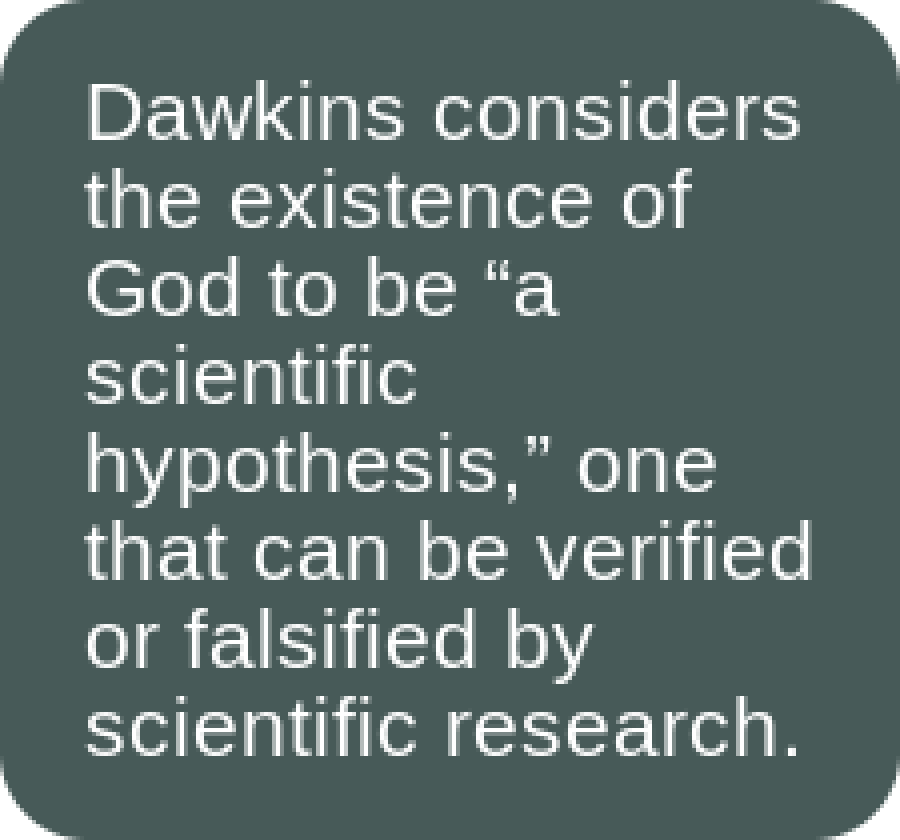A Christian Response to Richard Dawkins' Atheism (Part 1)
Image

With today’s fascination for “coming out” as something, many have decided to “come out” as atheists all over the world. Atheism is a phenomenon that surrounds us whether we realize it or not. We all likely have classmates, neighbors, or co-workers who are atheists. This situation should remind us that having atheists in our life means having people in our life, who also claim to be atheists.
Recently, I saw a woman shock her former church by announcing online: “I am an Atheist.” For her and her former church, the challenge of atheism is not just a philosophical challenge. It is a personal one. Atheism is a challenge to men and women, many of whom are young, and some of whom may even read these words.
The following apologia is my response to a particular version of modern atheism, the one recently popularized by English scientist, Richard Dawkins. In his massive polemic against God, The God Delusion (2006), Dawkins filled 374 pages with denunciations of “the pernicious delusion” of God. Dawkins summarized his claims in a much shorter piece published with the release of his book. My response to Dawkins will be based on his shorter article: “Why There Almost Certainly Is No God.”
Dawkins’ case against God
In this piece Dawkins describes religious commitment as “a global assault on rationality” and religious activists as “the American Taliban.” War lines are drawn with “supernaturalism on the one side and rationality on the other.” Dawkins sounds the alarm and stands for the defense of rationality against superstition (i.e. belief in God).
He feels confident that “there almost certainly is no God” and concludes:
We cannot, of course, disprove God, just as we can’t disprove Thor, fairies, leprechauns and the Flying Spaghetti Monster. But, like those other fantasies that we can’t disprove, we can say that God is very very improbable.
Dawkins considers the existence of God to be “a scientific hypothesis,” one that can be verified or falsified by scientific research. He portrays the “God Hypothesis” as, “a proper scientific hypothesis whose truth or falsehood is hidden from us only by lack of evidence.” Then he reminds us that, “no evidence for God’s existence has yet appeared.”
For example, there is no scientific evidence that God answers prayer. Also, there is no scientific evidence for the virgin birth. “Either Jesus had a father or he didn’t. The question is a scientific one, and scientific evidence, if any were available, would be used to settle it.” Dawkins holds to the classic view of modern science, that scientific evidence for “a fact” grants a level of probability for that “fact.” Therefore, the scientific evidence for God’s existence grants a probability level for His existence which, in Dawkins estimate, is “very very improbable.”
Dawkins notes that the probability of God’s existence has been decreasing in recent centuries:
[T]he probability of divine creation dropped steeply in 1859 when The Origin of Species was published, and it has declined steadily during the subsequent decades, as evolution consolidated itself from plausible theory in the nineteenth century to established fact today.
Traditional Christian arguments for God’s existence also hold no weight for Dawkins. For Dawkins, the First Cause argument only points to a God who “is magically able to terminate regresses while needing no explanation himself.” An improbable God appears out of nowhere to explain the origin of everything else. This seems childish and magical to Dawkins.
What about the classic “watchmaker” argument—the Argument from Design? Dawkins declares it, “one of the most superficially plausible bad arguments ever discovered.” Today the argument can be silenced by the response that “natural selection is so stunningly powerful and elegant, it not only explains the whole of life, it … boosts our confidence in science’s future ability to explain everything else.”
The origin of life is a mystery for Dawkins, but it is no reason to believe in God. Instead, the origin of life “took place through a hugely improbable stroke of luck.” But one good stroke of luck is all that is needed. After that Darwinian evolution explains everything else. Thus, the combination of one “massive dose of luck” and of Darwin’s natural selection, “provides a complete and deeply satisfying explanation for everything that we see and know.” Thus, Dawkins asserts the “God hypothesis” is both unnecessary and “very very improbable.”
How can a Christian respond to Dawkins’ claim that theism is an irrational delusion?
I suppose one could ignore him. But that is hardly a mature Christian response. Christians could assert evidences and arguments that they believe support belief in God’s existence. That is a fairly common response. However, this will likely result in talking past him, or fuel a war of words that must end in an impasse. An apparent stalemate ensues. Is meaningful engagement with Dawkins even possible?
(Tomorrow’s post aims to answer this question.)
Luke Bolton Bio
L. Bolton currently oversees the educational ministries at All Nations Baptist Church, (Minneapolis, MN) and is completing his MDiv at Central Baptist Theological Seminary, (Plymouth, MN). He and his wife, Lisa, have two young boys. They have served together in cross-cultural ministry and education for about seven years.
- 135 views


Discussion